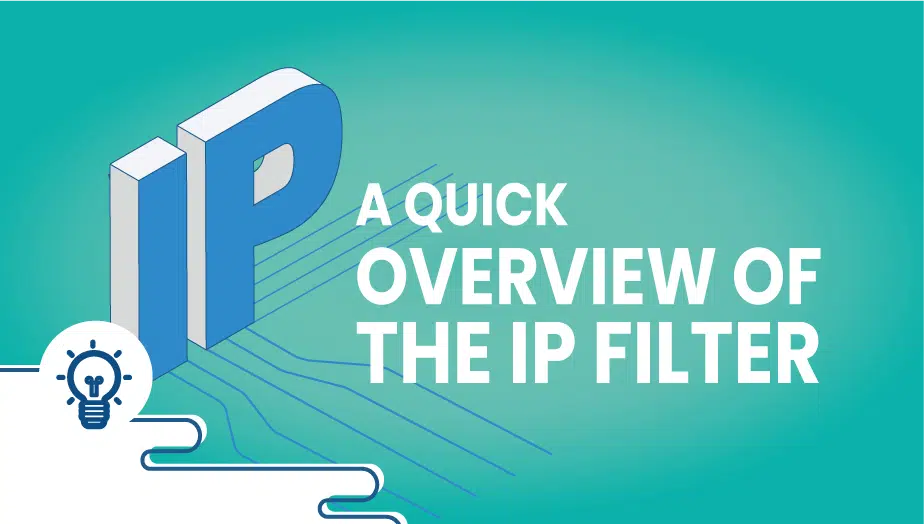Learn All About IP filter
What is an IP filter?
An IP filter is a software-based firewall that filters incoming and outgoing network traffic based on predefined rules. These rules are based on the IP address of the source and destination, protocol, port number, and other parameters. IP filters are used to protect networks from unauthorized access and attacks. They are a form of network security used to regulate traffic flow based on the rules defined by the administrator.
This open-source software package provides firewall functionality as well as network address translation to a number of Unix-like operating systems. FreeBSD, NetBSD, OpenBSD, and Solaris are all supported by this open-source firewall. As a kernel loadable module, IPfilter comes with the basic FreeBSD installation.
The following tutorials will help you troubleshoot IPFilter by providing helpful commands and techniques.
So let’s get start,
First,
Launch IPfilter
# service ipfilter startCheck out the active packet filtering rules
# ipfstat -ioRemove all filtering rules from the ruleset
ipf -F a
Turn off IPfilter
# service ipfilter stopSimple tasks
Permitting SSH but denying everything else
Include the following in /etc/ipf.conf to set up a firewall that blocks everything except SSH on port 22. The example IP address is 11.1.1.5
block in on any all
pass in quick on any proto tcp from any to 11.1.1.5/24 port = 22 keep state
That’s it; We hope this guide was informative for you.
IP filters Use cases
IP filters are used in various scenarios to secure networks from unauthorized access and attacks. Some of the use cases are:
Protecting web servers: IP filters can protect web servers from unauthorized access by filtering traffic based on the source IP address and port number.
Regulating access to resources: IP filters can be used to control access to resources like files, printers, and databases based on the IP address of the client.
Blocking specific traffic: IP filters can block specific traffic like spam and malware by filtering traffic based on the source IP address and protocol.
Securing VPN connections: IP filters can secure VPN connections by filtering traffic based on the source and destination IP addresses and ports.
Features
Some of the features of IP filters are:
Rules-based filtering: IP filters use a set of predefined rules to filter incoming and outgoing network traffic.
Port-based filtering: IP filters can filter traffic based on the port number used by the protocol.
Protocol-based filtering: IP filters can filter traffic based on the protocol used by the packet.
Source and destination IP address filtering: IP filters can filter traffic based on the source and destination IP addresses.
Dynamic filtering: IP filters can dynamically update the rules based on the network traffic.
IP filters Compared to other systems
IP filters differ from other firewall systems like stateful firewalls and application-layer firewalls. Stateful firewalls maintain a state table that keeps track of the current state of connections. Application-layer firewalls operate at the application layer of the OSI model and are used to inspect the application layer protocol data. On the other hand, IP filters operate at the OSI model’s network layer and check the packets’ IP header.
Open-source software
There are various open-source software available for IP filtering. Some popular ones are IPTables, PF (Packet Filter), and Netfilter. This software is available for free and can be customized as per the requirement of the network.
Some of the benefits of using IP filters are
Cost-effective: IP filters are cost-effective as they are available as open-source software.
Customizable: IP filters can be customized per the network’s requirement.
Easy to configure: IP filters are easy to configure and can be set up quickly.
Efficient: IP filters can handle large amounts of network traffic.
Provides basic security: IP filters provide essential protection by filtering network traffic based on predefined rules.
Some of the disadvantages of using IP filters are:
Limited protection: IP filters provide little protection as they only filter traffic based on predefined rules.
Not foolproof: IP filters are not sure, as sophisticated attacks can bypass them.
Limited visibility: IP filters have limited visibility into the application layer of the network traffic.
Complex rules: IP filters require complex rules to be defined to provide adequate filtering.
IP filters Alternative options
There are various alternative options available for IP filters, some of them are:
Stateful firewalls: Stateful firewalls maintain a state table that keeps track of the current state of connections. This provides more security compared to IP filters.
Application-layer firewalls: Application-layer firewalls operate at the application layer of the OSI model and provide more visibility into the application layer of the network traffic.
Intrusion detection systems (IDS): IDS detect and alert potential attacks by analyzing network traffic.
Intrusion prevention systems (IPS): IPS prevent potential attacks by analyzing network traffic and acting based on predefined rules.
Conclusion
IP filters are essential in securing networks from unauthorized access and attacks. They are cost-effective, customizable, easy to configure, and efficient. However, they provide limited protection and visibility into the application layer of the network traffic. Various alternative options are available for IP filters, like stateful firewalls, application-layer firewalls, IDS, and IPS. It is essential to choose the right network security technology based on the requirement of the network.
Get the most out of learning with VPSie.com
An IP filter is a firewall software that monitors and controls incoming and outgoing network traffic according to specific rules.
An IP filter examines the IP header of packets and sorts traffic according to the guidelines set by the administrator. These guidelines are based on the source and destination IP addresses, protocol, port number, and other criteria.
Some of the features of IP filters are rules-based filtering, port-based filtering, protocol-based filtering, source and destination IP address filtering, and dynamic filtering.
Web servers are protected, and access to resources is regulated through IP filters. These filters also block unwanted traffic, such as spam and malware, ensuring secure VPN connections.
IP filters are cost-effective, customizable, easy to configure, and efficient in handling significant network traffic.























